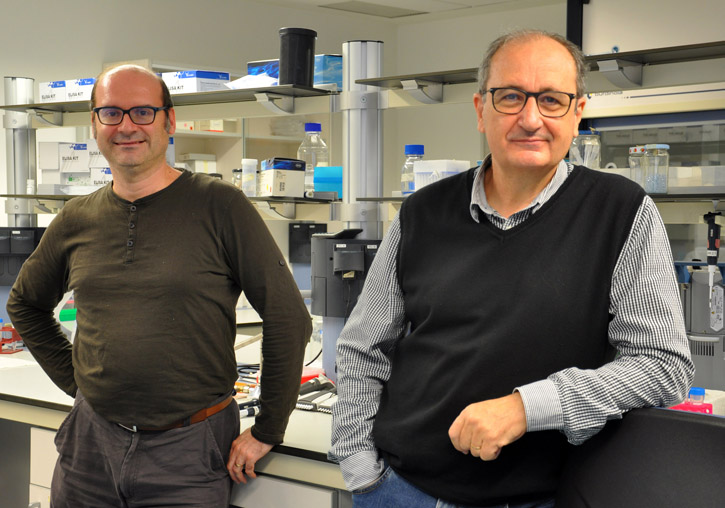Users
Social media
- More details here...
- Address
Parc Científic de la Universitat de València C/
Catedrático Agustín Escardino, 9
46980 Paterna (Valencia) Spain - Email:
iu.i2sysbio@uv.es - Phone:
(+34) 963544810
- Address
Links
A type of virus present in the intestinal microbiota is associated with better cognitive ability

Investigation
A type of virus present in the intestinal microbiota is associated with better cognitive ability

The results show that the bacteriophages present in the intestinal microbiota influence the relationship between the microbiome and the brain. Furthermore, the work opens the door to new lines of research such as the study of possible dietary supplements with this virus in isolation to improve people's cognitive abilities.
The study has been led by Jordi Mayneris-Perxachs and José Manuel Fernández-Real, from the Nutrition, Eumetabolism and Health group of the IDIBGI and the CIBEROBN, and has been carried out in collaboration with the Neuropharmacology research group led by Rafael Maldonado in the Pompeu Fabra University; the Human Microbiome group of Andrés Moya and Vicente Pérez-Brocal, from the FISABIO Foundation; the Institute of Integrative Systems Biology (I2SysBio, joint center of the UV and the Higher Council for Scientific Research-CSIC); CIBERESP and the University of Alicante (UA).
Bacteriophages, a type of virus that replicates within bacteria, represent one of the biggest gaps in knowledge of the human microbiome. This research has focused on the study of two types of bacteriophages prevalent in the intestinal microbiota: the Caudovirales and the Microviridae. In a sample of 114 people, expanded to 942 subjects (participants in the IDIBGI Aging Imaging project), the research team has found that “individuals with more Caudovirales had better performance in executive processes and verbal memory, and, on the other hand, the presence of higher levels of Microviridae were related to a greater deterioration in the executive abilities of the brain,” says José Manuel. Fernández-Real, head of the Nutrition, Eumetabolism and Health group at IDIBGI and CIBEROBN.
Dairy products, a possible way to acquire Caudovirals
To find out how people can access these viruses, the scientific team carried out dietary surveys on the participants to find out their diet. Interestingly, individuals who had more Caudovirals in their gut microbiota consumed more dairy products on a regular basis. A finding supported by the scientific literature in this area: some previous research indicated that people who drank more dairy products had better cognitive functions.
With the aim of further strengthening the result, an experiment was done with mice, using the microbiota present in the different samples of human feces, for which they transplanted it to the intestine of the rodents. Mice that received a microbiota rich in Caudovirales presented better cognitive performance and more memory than other mice.
A second confirmatory experiment was carried out using flies (Drosophila melanogaster) as an animal model, also known as fruit flies. First, a group of flies was fed with whey, and demonstrated to have more memory than the other group of Drosophila that ingested the sterilized whey and, therefore, without viruses. The experiment was repeated, but in this case the flies' diet was supplemented with the isolated bacteriophages. The results were replicated again. By looking at a cluster of genes in the fly brain, the authors found that the presence of Caudovirales upregulated genes associated with memory. Microbe(2022), https://doi.org/10.1016/j.chom.2022.01.013


